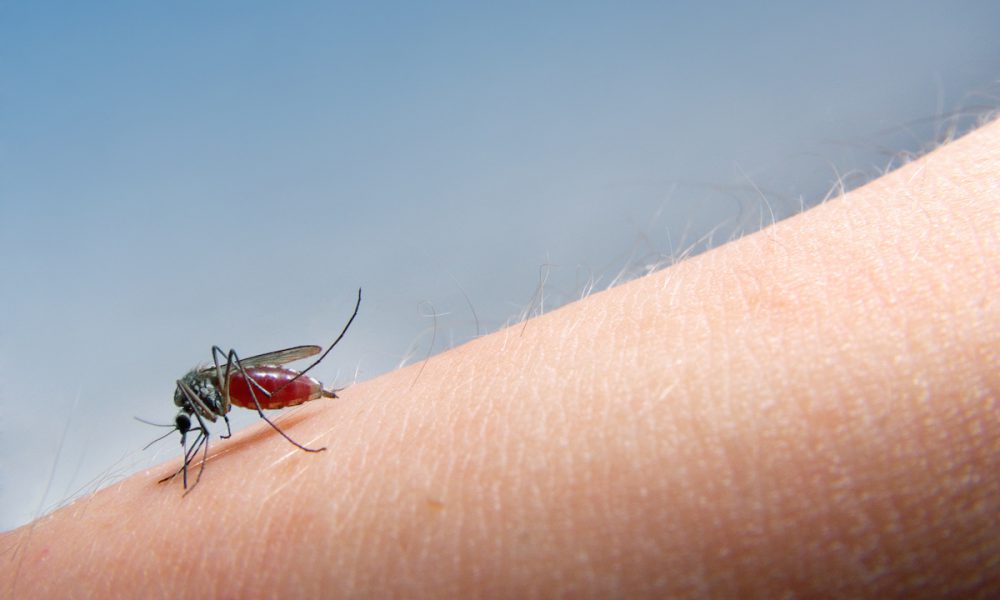
“Health officials in Georgia said they’ve found mosquitoes that test positive for West Nile virus this year. The DeKalb County Board of Health said mosquitoes testing positive for West Nile virus were found in Tucker. The West Nile virus is a disease spread through mosquito bites. It is most commonly discovered during summer and fall months when mosquito activity is more common”, reports WSB TV Channel 2 Atlanta.
What is West Nile Virus?
The Centers for Disease Control and Prevention states that “West Nile is a virus most commonly spread to people by mosquito bites. In North America, cases of West Nile virus (WNV) occur during mosquito season, which starts in the summer and continues through fall. WNV cases have been reported in all of the continental United States. There are no vaccines to prevent or medications to treat WNV in people. Fortunately, most people infected with WNV do not have symptoms. About 1 in 5 people who are infected develop a fever and other symptoms. About 1 out of 150 infected people develop a serious, sometimes fatal, illness. You can reduce your risk of WNV by using insect repellent and wearing long-sleeved shirts and long pants to prevent mosquito bites”.
Symptoms?
“While 80 percent of people infected with the virus don’t develop symptoms, 1 in 5 develop common symptoms, including:
- fever
- headache
- body aches
- joint pains
- vomiting
- diarrhea
- rash
Infected people with the aforementioned symptoms usually recover, though fatigue can exceed weeks and months”, reports AJC The Atlanta Journal-Constitution News.
What to do?
“The most effective way to avoid West Nile virus disease is to prevent mosquito bites,” according to the CDC.
Unfortunately, it is hard to avoid mosquitos especially with summer here and most people are outside enjoying a backyard barbecue, family reunion, birthday party, and outdoor weddings.
Here are some recommendations on preventing mosquito population growth:
- Keeping trash containers properly covered.
- Keeping gutters clean of leaves and debris.
- Trimming grass and shrubbery around the house, destroying adult mosquito hiding places.
- Discarding any water-holding containers such as buckets, tires, cans, etc.
- Repairing outside faucets and leaky pipes.
- Removing weeds from drains, ditches and culverts.
- Changing water in plant pots, drip trays and birdbaths at least once a week
- Storing wading pools inside when not in use or drain at least once a week.
- Adding fish to ornamental ponds help control mosquitoes.
- Draining or filling in any puddles, ruts, etc.
- Filling in tree holes holding water.
- Removing accumulated water from boats at least once a week or storing them upside down.
- Keeping window screens in good condition.
- Using personal protection such as proper clothing and insect repellents during peak mosquito biting activity in the evening
Mosquito Reduction Treatment Plans
Pest and Lawn Companies offer treatment plans specifically designed for mosquito reduction – one time for a special occasion or on-going during the year. It is important to be consistent using the plans so that you deal with both the adult and larval mosquitoes.
Contact Us
Choose Proactive Pest Control for professional, comprehensive, guaranteed pest and lawn management. The pros at Proactive will work diligently to gain your trust, confidence, and your total satisfaction. CALL US TODAY at 770-800-PEST to schedule a free, no obligation inspection and evaluation for your home or business. Or, contact us for a FREE consultation. Let us show you why Proactive Pest Control is northeast Georgia’s first choice for pest, termite, and lawn services.